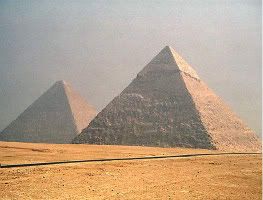What happens to speakers of Arabic who immigrated to the USA and whose language became a minority language?
What is the role of Arabic, a minority language, in shaping the ethnic identity of Arab-Americans?
In Europe there are investigations and discussions regarding the rise of Arab identity, and to the threat it might cause to the prevailing European national identity. There are discussions as to the rising role of Arabic and/or Islam and it’s playing a major role in building an Arab/Islamic identity.
Is Arabic in its American Diaspora facing the same path of other diasporic contexts of the language, such as Moroccan in Holland or Algerian in France?
Most studies of minority languages or ethnic languages are consistent in their conclusions that the use of ethnic language gradually decreases with successive generations due to the process of assimilation. There are certain events, however, that might lead to an ethnic revival.
Fishman (the Rise and Fall of the Ethnic Revival: Perspectives on Language and Ethnicity, 1985:114) wrote about the attrition of ethnic languages such as French, German, Italian, Polish, Spanish, and Yiddish in the United States based on 1960 and 1970 census data, and stated that most who claim non-English mother-tongues no longer use them. Except for Spanish, the attrition rate of the other languages is 36%, while for Spanish it is 19%. This is, of course, due to the large number of those who claim Spanish as mother tongue, and due also to the continuous waves of new immigrants from Spanish-speaking countries.
Arabic speakers in the Detroit metro area share with Spanish speakers these two factors: first, the continuous arrival of new immigrants in their neighborhoods. Second, a large number of Arab-American speakers maintain that Arabic is their mother tongue.
I have conducted a survey of 79 Arab-Americans students studying standard Arabic as a foreign language at Wayne State University: 77out of the 79 stated that Arabic is very important to them. The subjects gave the following categories of reasons for their interest:
38% Ethnic identity
34% Religious affiliation
33% Fulfilling a language requirement
24% The importance of Arabic from a global perspective
5% The influence of parental advice
Hence, ethnic identity and religion are indeed major factors contributing to an increase in the use and learning of Arabic among Arab-Americans, whether at home or as a foreign language in schools and universities.
Standard Arabic acts as a unifying force among all speakers of the language. It is a common denominator that is bringing Arab speakers together, whether in the Arab world or among ethnic groups in the Diaspora. It is an expression of identity. Thus, the standard form of Arabic creates a sense of ethnic identity among Arab-Americans who belong to different speech communities. It is a language from which members of the different speech communities draw support and upon which they build their Arab-American ethos in the Diaspora. Hence, it creates a bond of solidarity and an ethnic identity that raises a feeling of ‘us versus them’.
I came across an article written by Mohammed Almezel in the Wereview (December 25, 09). It is a case whereby Arabic is sought in search of identity. It is the case of the Comoros.
The Union of the Comoros consists of four islands in the Indian Ocean. They declared their independence from France in 1975. Almezel wrote, “The Comoros government has lately been promoting the nation’s Arab heritage …. The majority of the Arabs are believed to have come from Oman and Yemen. The country derives its name from the Arabic word Qamar meaning ‘moon’. The islands are known in Arabic as Juzur al Qumur, which means ‘Islands of the moon”( Almezel). Furthermore, almost 98 % of the islands population is Muslim.
Arabic is still in its infancy. The local language is Shikomoro, a blend of Swahili and Arabic. Officials speak French.
Almezel quotes a high school teacher as saying, “…I am African, of course, but we are also Arab and we try to regain our language…” Unfortunately, Arab countries are reluctant to embrace the Comoros as an Arab country. When they do, they will find that the process of Arabization has already started for the people of the Comoros who want to revive and preserve their ‘Arab identity’.
The above discussion deals with two different cases of Arabic as an ethnic language. However, in both cases identity is sought. The first case of an Arab identity surge is that of a community within a country - the Arab-American community in the United States. The second case is about the identity of a country within a large community – the Arab world .




